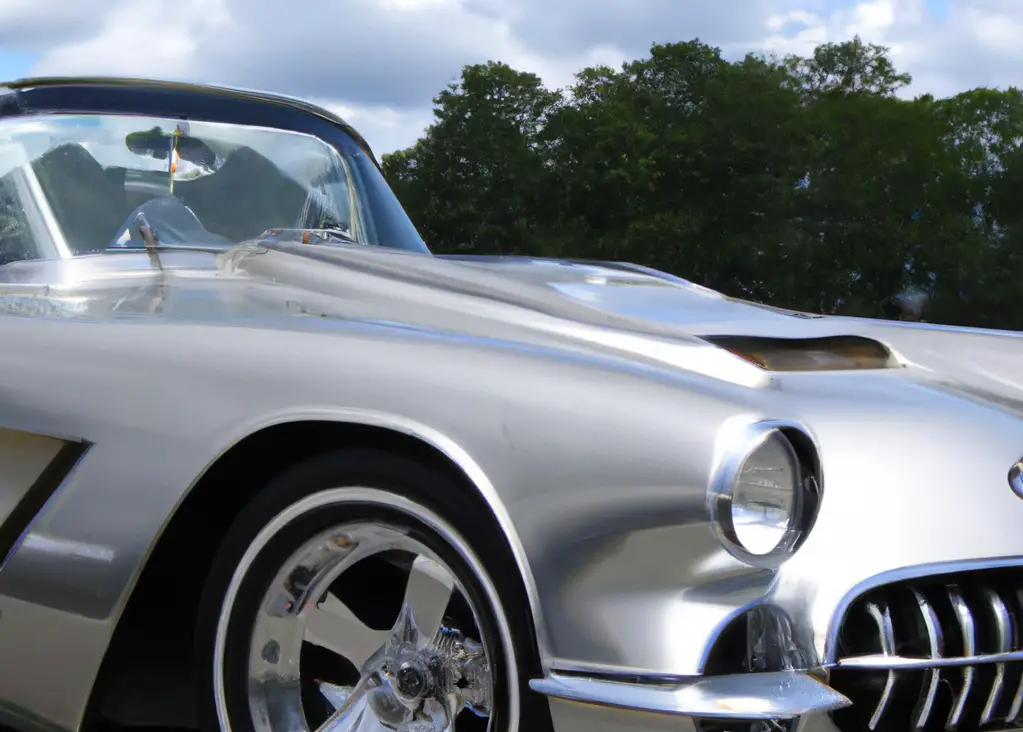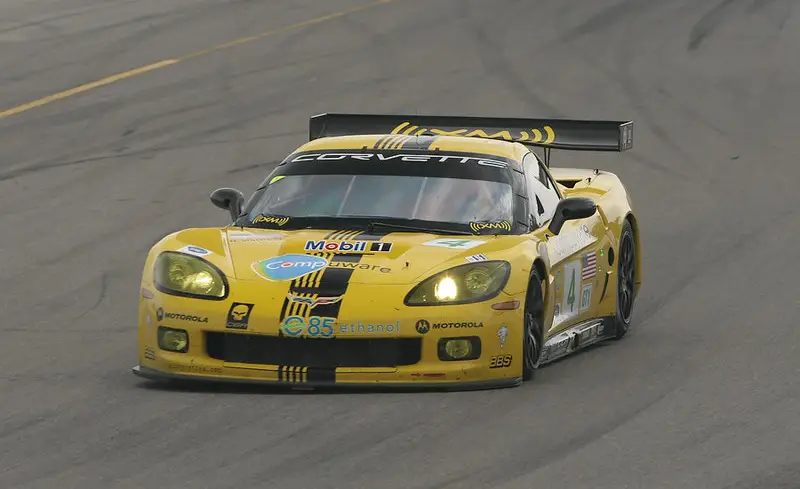Since the early 50s Chevrolet Corvette has been in the game of sports cars. It has a long and storied history in racing, with the first generation of Corvettes being used in competition as early as the 1950s. Over the years, the Corvette has competed in a variety of racing disciplines, including road racing, drag racing, and endurance racing. Here is a brief overview of the history of Corvette racing.
The first generation of Corvettes, which were produced from 1953 to 1962, was not initially designed for racing. However, some early models were modified for competition and raced in events such as the 24 Hours of Le Mans and the 12 Hours of Sebring. In the late 1950s, Chevrolet began to develop the Corvette specifically for racing, with the goal of competing against European sports cars such as the Jaguar XK120 and the Mercedes-Benz 300SL.

Second, Third, and Fourth Generations of Corvette Racing
The second generation of Corvettes, which were produced from 1963 to 1967, saw the introduction of the Sting Ray, a more aerodynamic and performance-oriented version of the Corvette. This generation of Corvettes was highly successful in racing, with the Sting Ray winning numerous races in the United States and abroad.
The third generation of Corvettes, which were produced from 1968 to 1982, marked a shift towards more luxurious and comfort-oriented models. However, some models of this generation, such as the 454 and the ZL1, were developed specifically for racing and saw success on the track.
The fourth generation of Corvettes, which were produced from 1984 to 1996, marked a return to the performance-oriented roots of the car. The fourth generation of Corvettes saw success in racing, with the Corvette C4 competing in events such as the 24 Hours of Le Mans and the IMSA GT Championship.
Fifth, Sixth, and Seventh Generations of Corvette Racing

The fifth generation of Corvettes, which were produced from 1997 to 2004, introduced the LS1 V8 engine, which became a popular choice for use in racing. The fifth generation of Corvettes also saw the introduction of the Z06 model, which was developed specifically for racing and had a lightweight and aerodynamic design.
The sixth generation of Corvettes, which was produced from 2005 to 2013, introduced the LS2 V8 engine and the C6.R racing model. The C6.R was highly successful in endurance racing, winning the 24 Hours of Le Mans in 2009 and 2011.
The seventh generation of Corvettes, which was produced from 2014 to 2019, introduced the Stingray model, which was named after the second generation of Corvettes. The seventh generation of Corvettes also saw the introduction of the Z06 and ZR1 models, which were powered by a supercharged V8 engine and were designed for both on-road and track use.
Eighth Generation of Corvette Racing

The eighth generation of Corvettes, which were produced from 2020 to the present, introduced the mid-engine layout for the first time in the car’s history. The eighth generation of Corvettes also saw the introduction of the C8.R racing model, which is based on the production C8 Corvette and has been developed for competition in the IMSA WeatherTech SportsCar Championship.
In summary, the Chevrolet Corvette has a long and storied history in racing, with each generation of the car competing in various events and disciplines around the world. The Corvette has consistently pushed the boundaries of performance and has become a household name in the world of motorsports.


